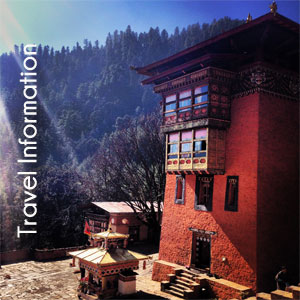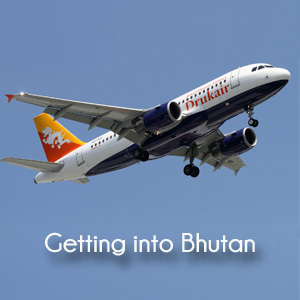Gross National Happiness: Development Philosophy of Bhutan
Gross National Happiness is a term synonymous with the Kingdom of Bhutan. GNH as it is broadly known, is envisioned and authored by our 4th Dragon King, His Majesty Jigme Singye Wangchuck. It centres the ideology of pursuing and measuring the country’s growth in terms of its citizen’s happiness, as opposed to its gross national or domestic product. His Majesty used this phrase to signal his commitment to building an economy that would serve Bhutan’s unique culture based on Buddhist spiritual values. Basically GNH was designed to define an indicator that measures the quality of life or social progress in more holistic and psychological terms, not only the economic indicator of GDP.
Bhutan sure is a small developing country and we don’t have all those technical know-how or the advancements in everything we do to develop our country. But since we were not there at that advanced level, we don’t mind not getting there either. Our way of life and our traditions, over the years, have taught us not to go to the extremes to prove your worth, in any field, and we continue to follow suit. If a man is worth something, eventually he will be noticed. Going all out to prove it, is stupidity in here!Ours is a simple way to live life and when living is simple, small things get you the happiness you look for.
The concept of GNH and its importance in the lives of each and everyone here, are taught from the primary school through college. It is something that is now deeply rooted in everyone’s mind and whatever each one us here do, is in accordance with, and keeping in mind the pillars of GNH.
GNH concept has now travelled wide and far, and many countries are looking to adopt the same concept as well, replacing the more common indicator of GDP. And if that becomes a reality, Bhutan would have had played the role of completely shifting the paradigm, on which the world presently resides.
The four main pillars of Gross National Happiness are:
Equitable and equal socio-economic development,?2. Preservation and promotion of cultural and spiritual heritage,?3. Conservation of environment and,?4. Good governance which are interwoven, complementary, and consistent.
They embody national and local values, aesthetics, and spiritual traditions. As a result, we can see that the concept of Gross National Happiness is now being taken up by various other countries, following footsteps of Bhutan. This has led them to define prosperity in more enhanced terms and to actually measure people’s well being rather than measuring what they actually consume. Crucial to a better understanding of Gross National Happiness, is one its wider reach and awareness amongst other countries, two, and the various indices that has now been formulated to assess even material gains and lastly, the growing need to synthesis the moral with the cultural values as the core of any economic policy.
Gross National Happiness as a development paradigm has now made possible for Bhutan to take its developmental policies into the remote corners and include the far flung villagers into the development aspects by meeting their needs and accentuating the need to protect and preserve our rich environment and forest cover. The success of Gross National Happiness can be found in many areas besides developmental aspects. The policy of low volume but high value tourism has indeed assisted not only in the high revenue generation but in fact facilitated the promotion and preservation of our cultural values.
Further, the concept of Gross National Happiness has greatly enabled her in the pursuit of development, at the same time promoting happiness as the core philosophy of life. For the government, it has facilitated the drive towards self sufficiency and self reliance, the ultimate reduction in the gap between the rich and the poor and ensuring good governance and empowerment of her people.
Following the international seminar on Operationalizing Gross National Happiness held in Bhutan in February 2004, the participants felt it useful to establish a Gross International Happiness Network, indicating the influence of Gross National Happiness beyond the Bhutanese Borders.
The Network attempts to find best examples of sustainable development that incorporates values reflecting general well being of the people. The GIH Network is a collaboration of the following institutions:
- Center for Bhutan Studies, Bhutan
- Spirit in Business, USA and the Netherlands
- Social Venture Network Asia, Thailand
- ICONS, Redefining Progress & Implementing New Indicators on Sustainable Development, Brazil
- Inner Asia Center for Sustainable Development, the Netherlands
- The New Economics Foundation, UK
- Genuine Progress Indicators / GPI Atlantic, Canada
- Corptools/Values Center, USA
- International Society for Ecology and Culture, UK

Bhutan Travel Info
Bhutan Travel tips, Daily Tourist Tariff, Bhutan Visa Information, Tour payment regarding your tour booking to Bhutan. Click on the link below to know more.
Learn more >>

Tour Packages
Travel to Bhutan with Sachock Bhutan Travels. We, at Sachock offers Cultural tours, Trekking Tours including the World's toughest Trek Snowmen Trek and colorful Festival tours of Bhutan.
Learn more >>

Getting into Bhutan
Travelling to Bhutan can be accessible by Air, to Paro(the only international airport in Bhutan connecting with Indian Cities, Nepal, Bangaldesh, Thailand & Singapore) & Road through Southern border towns of Phuentsholing, Gelephug and Samdrup Jongkhar.
Learn more >>

Sachock Bhutan Travels, P.O Box No: 1304, Karma Khangzang, Thimphu : Bhutan
Phone # (+975) 77177717 / 77210443 : Tele-Fax (+975) 2 333 881
Email: [email protected] / www.SachockBhutanTravels.com
Sachock Bhutan Travels, Copyright © 2025. All Rights Reserved.






